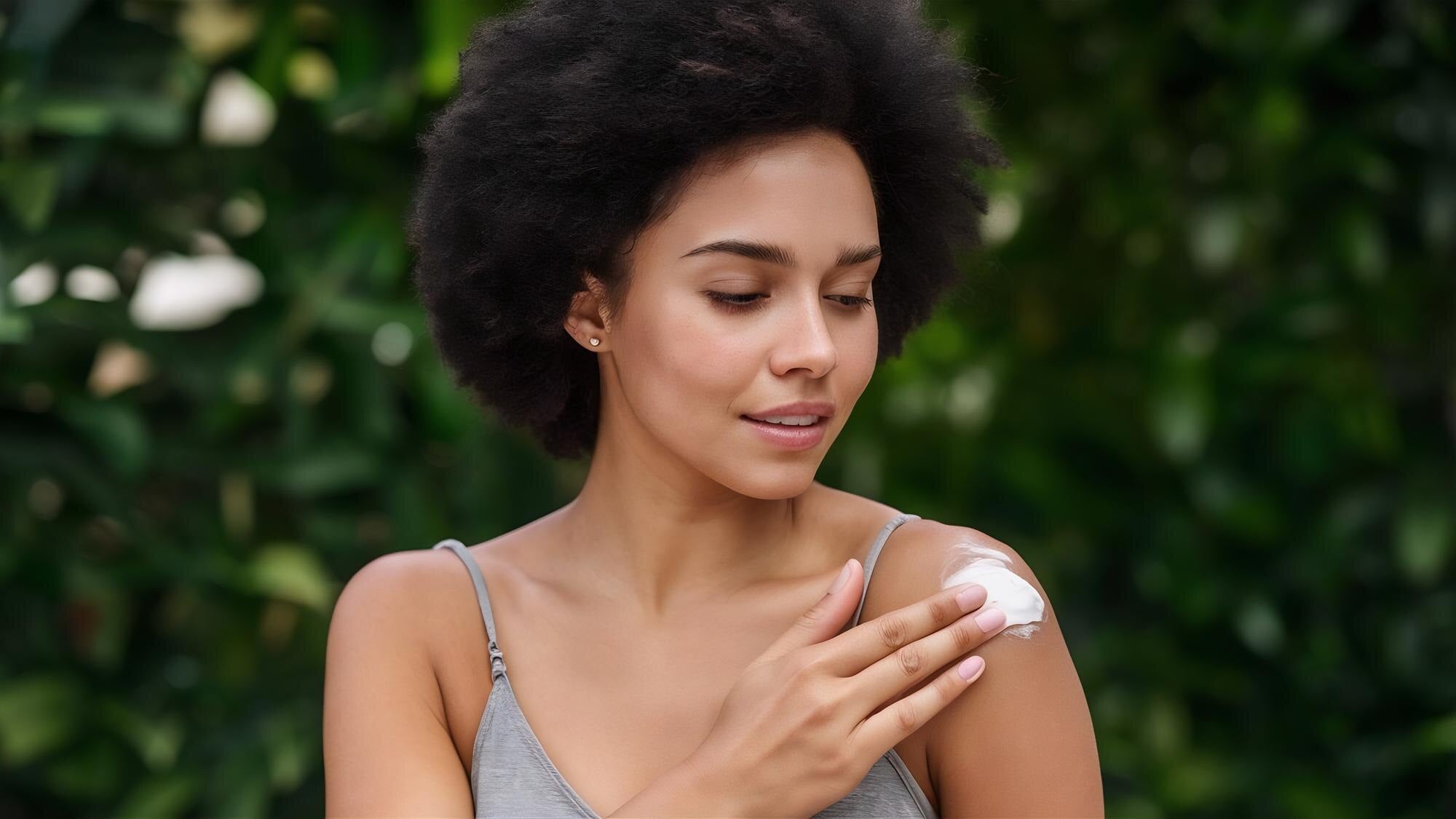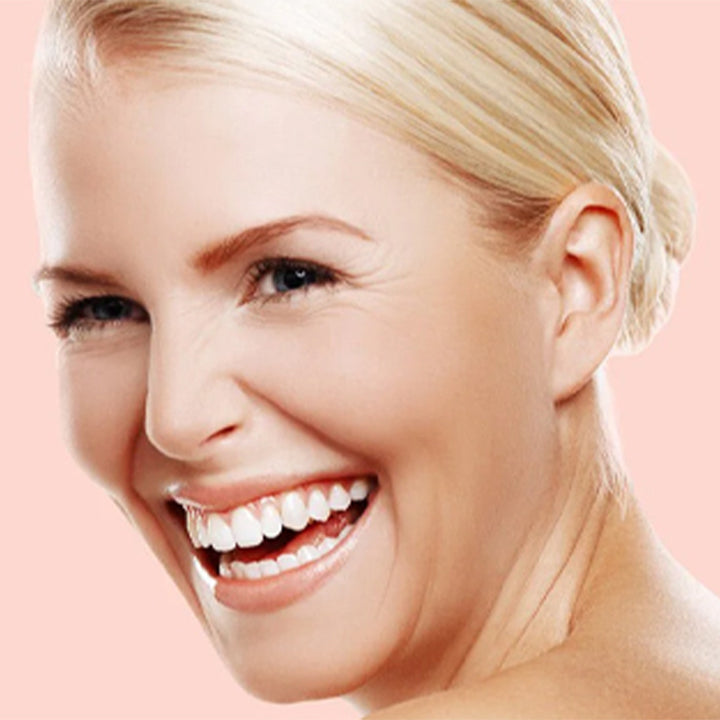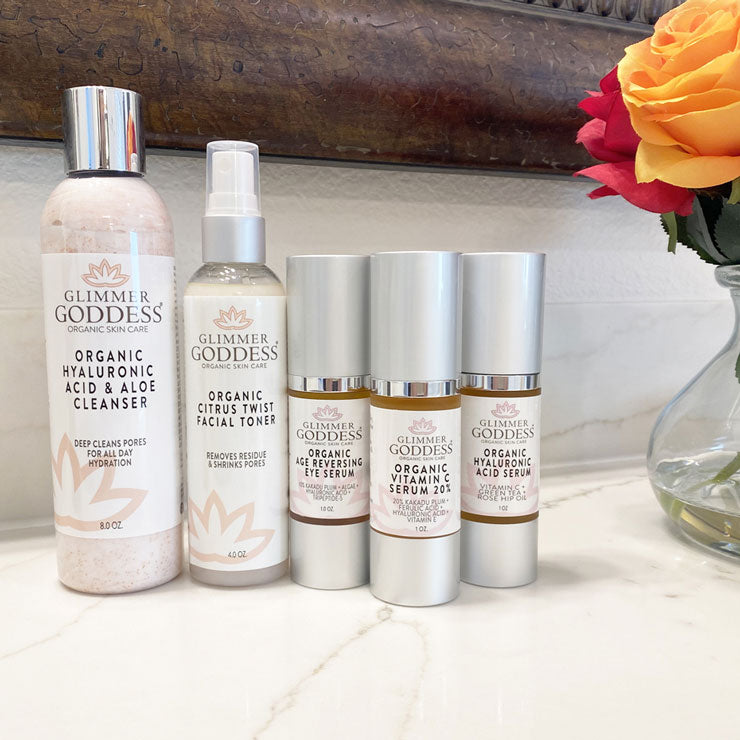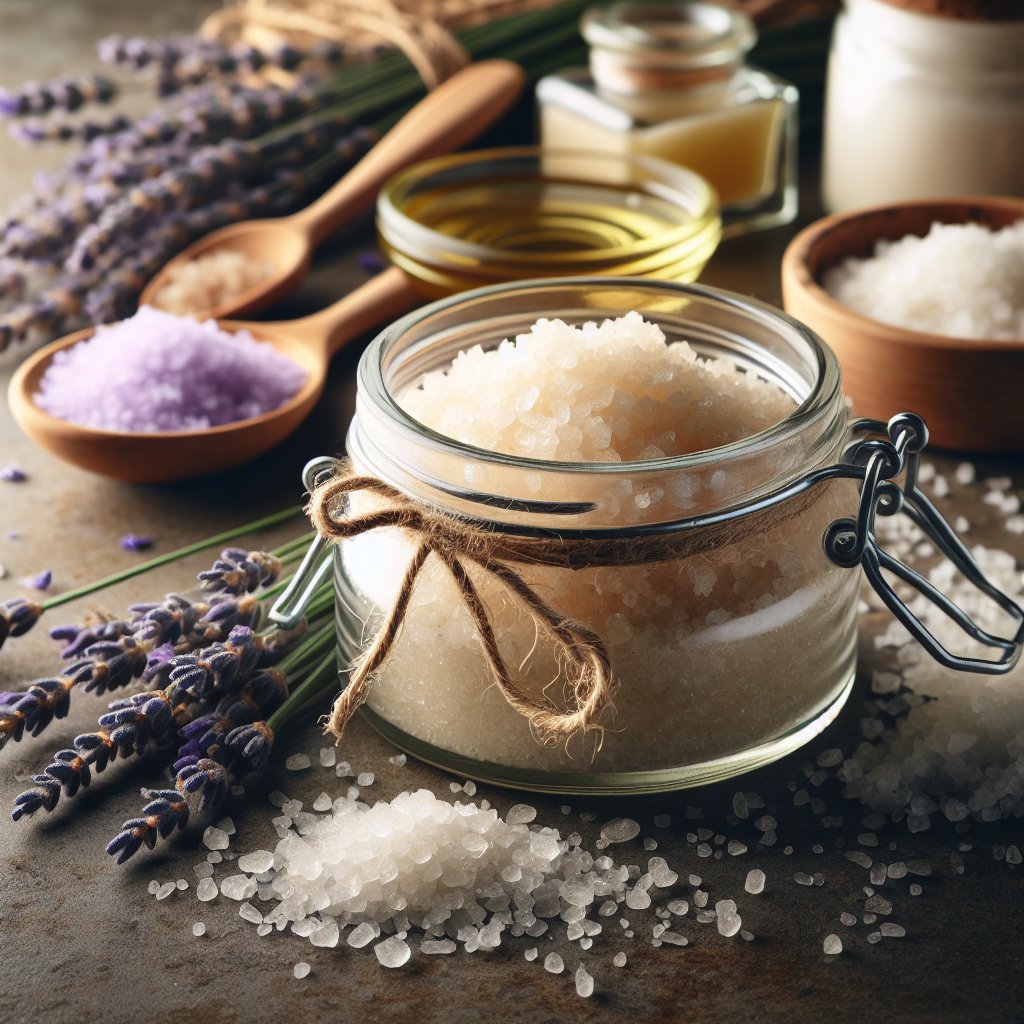
Healing Pink Skin: Essential Care Tips After a Scab Falls Off
Caring for Your Precious Skin: The Ultimate Guide to Gentle Cleansing
What cleaning methods are safe for pink skin?
When it comes to caring for sensitive or healing skin, it's essential to choose cleaning methods that are gentle and non-irritating. The skin on your body is delicate, and it requires special attention to maintain its health and radiance.
Opt for Mild, Fragrance-Free Cleansers
- Look for cleansers that are formulated specifically for sensitive skin types, as they are less likely to contain harsh chemicals or irritants.
- Avoid products with fragrances, dyes, or alcohol, as these can be drying and aggravate the skin.
- Consider using a creamy, moisturizing cleanser that won't strip your skin of its natural oils.
Incorporate Gentle Exfoliation
- Gentle exfoliation can help remove dead skin cells and improve the appearance of the skin, but it's important not to over-exfoliate.
- Use a soft, microfiber washcloth or a gentle, chemical exfoliant with lactic or glycolic acid to slough off dead skin without causing irritation.
- Limit exfoliation to a few times per week, and always follow up with an organic moisturizer to hydrate the skin.
Cleanse with Lukewarm Water
- Hot water can be drying and irritating to sensitive skin, so opt for lukewarm water when cleansing.
- Avoid scrubbing or rubbing the skin too vigorously, as this can cause further irritation.
- Pat the skin dry gently with a soft towel, being careful not to rub or tug at the delicate skin.
By choosing gentle, fragrance-free cleansers and incorporating a delicate exfoliation routine, you can keep your sensitive skin looking and feeling its best. Remember, patience and a light touch are key when it comes to caring for your precious complexion.
Should I use soap or only water?
When it comes to cleansing sensitive or healing skin, the debate between using soap or just water can be a tricky one. Both options have their pros and cons, and the best approach may depend on your individual skin type and needs.
The Benefits of Soap-Free Cleansing
- Soap-free cleansers are often gentler and less drying than traditional bar soaps, making them a better choice for sensitive skin.
- These cleansers can help maintain the skin's natural pH balance and protect the delicate barrier function.
- They are less likely to leave behind residue or strip the skin of its natural oils, which can help keep it hydrated and healthy.
The Drawbacks of Soap-Based Cleansers
- Conventional bar soaps can be harsh and drying, particularly for those with sensitive or damaged skin.
- The alkaline nature of soap can disrupt the skin's natural acidic pH, leading to irritation and dryness.
- Soap-based cleansers may also contain fragrances, preservatives, and other ingredients that can further aggravate sensitive skin.
The Simplicity of Water-Only Cleansing
- Using only lukewarm water to cleanse the skin can be a gentle, effective, and low-maintenance option for those with very sensitive complexions.
- This method helps preserve the skin's natural oils and barrier function, without the risk of harsh chemicals or irritants.
- Water-only cleansing can be particularly beneficial for areas that are healing or undergoing treatment, as it minimizes the potential for further irritation.
Ultimately, the decision between using soap or water-only cleansing should be based on your individual skin type and needs. If you have sensitive or healing skin, it's generally best to opt for a gentle, fragrance-free cleanser or stick to lukewarm water. Pay attention to how your skin responds and adjust your routine accordingly for the best results.
How often should I clean the healing area?
Maintaining a consistent and gentle cleansing routine is crucial when it comes to caring for sensitive or healing skin. However, the frequency of cleansing can vary depending on your individual needs and the specific condition of your skin.
Cleansing Frequency for Healing Skin
- For areas of the skin that are actively healing, such as from a wound or skin treatment, it's generally recommended to cleanse the area once or twice a day.
- Avoid over-cleansing, as this can disrupt the natural healing process and lead to further irritation.
- Gently pat the skin dry with a soft, clean towel after cleansing, being careful not to rub or tug at the delicate area.
Cleansing Frequency for Sensitive Skin
- For individuals with generally sensitive skin, it's often best to stick to a gentle, one or two-step cleansing routine once or twice a day.
- Avoid harsh scrubbing or over-cleansing, as this can strip the skin of its natural oils and lead to dryness, irritation, and inflammation.
- Pay attention to how your skin responds to your cleansing routine and adjust the frequency as needed to maintain a healthy, balanced complexion.
Incorporating Gentle Exfoliation
- Gentle exfoliation, such as with a soft washcloth or a light chemical exfoliant, can help remove dead skin cells and improve the overall appearance of the skin.
- However, it's important not to overdo it, especially for sensitive or healing skin.
- Limit exfoliation to a few times per week, and always follow up with a nourishing moisturizer to hydrate and soothe the skin.
Striking the right balance between cleansing and maintaining the skin's natural barrier is key when it comes to caring for sensitive or healing skin. Listen to your skin's cues and adjust your routine accordingly to keep your complexion looking and feeling its best.
By following a gentle, consistent cleansing routine tailored to your individual skin needs, you can help maintain the health and radiance of your precious skin. Remember, patience and a light touch are essential when it comes to caring for sensitive or healing complexions.
The Ultimate Guide to Nourishing Your Skin with the Right Moisturizers
What types of moisturizers should I choose?
Choosing the right moisturizer for your skin can seem like a daunting task, but it doesn't have to be. Understanding the different types of moisturizers and how they cater to various skin types can help you make an informed decision.
Moisturizers come in a variety of formulas, each with its own unique benefits:
- Creams are the classic choice, providing a rich, emollient texture that deeply nourishes dry or mature skin.
- Lotions are lighter in consistency, making them a great option for normal to combination skin types.
- Gels are the lightest in texture and are ideal for oily or acne-prone skin, as they won't clog pores.
- Serums are concentrated formulas that address specific skin concerns, such as fine lines, dullness, or uneven tone.
When selecting a moisturizer, consider your skin type, climate, and any skin concerns you may have. Experiment with different formulas to find the one that leaves your skin feeling hydrated, plump, and radiant.
Are there any ingredients to avoid?
Not all moisturizing ingredients are created equal. Some can actually do more harm than good, particularly for sensitive or problematic skin types. Knowing which ingredients to steer clear of can help you make more informed choices.
Ingredients to avoid in your moisturizer include:
- Fragrances, both synthetic and natural, as they can cause irritation and sensitization.
- Alcohol, which can dry out and strip the skin of its natural oils.
- Mineral oils, which can clog pores and prevent skin from breathing.
- Parabens, a class of preservatives that have been linked to hormone disruption.
- Sulfates, which can be harsh and drying on the skin.
Instead, look for moisturizers that contain gentle, nourishing ingredients like:
- Hyaluronic acid to deeply hydrate and plump the skin.
- Ceramides to strengthen the skin's natural barrier.
- Antioxidants like vitamin C, E, or green tea to protect against environmental stressors.
- Soothing botanicals like aloe vera, chamomile, or oatmeal to calm inflammation.
How can I enhance healing with natural oils?
Incorporating natural oils into your skincare routine can take your moisture levels to the next level. These potent plant-based ingredients not only nourish the skin but can also support the healing process for a variety of skin concerns.
Some of the most beneficial natural oils for skin include:
- Rosehip seed oil, which is rich in vitamin C and essential fatty acids to brighten and regenerate the skin.
- Argan oil, known for its high concentration of antioxidants and ability to minimize the appearance of fine lines and wrinkles.
- Marula oil, a lightweight, non-comedogenic oil that helps to balance sebum production and improve skin elasticity.
- Jojoba oil, which closely resembles the skin's natural sebum, making it an excellent hydrator and emollient.
- Squalane, a plant-derived lipid that mimics the skin's own moisturizing compounds to deeply nourish and protect.
You can incorporate these nourishing oils into your routine by using them as a standalone treatment, blending them into your favorite moisturizer, or even creating your own custom oil blend tailored to your specific skin needs.
Achieving a healthy, radiant complexion is all about finding the right moisturizing products and ingredients that work in harmony with your unique skin type and concerns. By understanding the different formulas, avoiding potential irritants, and harnessing the power of natural oils, you can unlock the path to plump, glowing skin that feels nourished from within.
Protecting Your Skin: A Comprehensive Guide to Sun Safety and Skin Health
What are the best practices for sun protection?
Maintaining healthy and vibrant skin requires a proactive approach to sun protection. Sun exposure can have detrimental effects on the skin, leading to premature aging, wrinkles, and an increased risk of skin cancer. Adopting the right sun protection strategies is crucial for keeping your skin safe and radiant.
The Importance of Sunscreen
- Sunscreen is the foundation of effective sun protection. It helps shield your skin from the harmful ultraviolet (UV) rays of the sun, which can cause sunburns, dark spots, and long-term skin damage.
- Choose a broad-spectrum sunscreen with an SPF (Sun Protection Factor) of at least 30 to ensure comprehensive protection against both UVA and UVB rays.
- Apply sunscreen generously, using about a shot glass-sized amount for your entire body. Reapply every two hours, or more frequently if you are engaging in water activities or sweating.
Protective Clothing and Accessories
- In addition to sunscreen, wearing protective clothing can significantly enhance your sun protection. Look for lightweight, tightly-woven fabrics that block UV rays, such as long-sleeved shirts, pants, and wide-brimmed hats.
- Invest in UV-blocking sunglasses to shield your eyes and the delicate skin around them from sun damage.
- Consider wearing sun-protective swimwear, which is designed to offer high levels of UV protection while you enjoy outdoor activities.
Seeking Shade
- Whenever possible, seek shade to minimize your direct exposure to the sun's rays. This can be as simple as finding a tree or umbrella to sit under or choosing to exercise in the early morning or late afternoon when the sun's intensity is lower.
- Be mindful of the sun's peak hours, typically between 10 AM and 4 PM, and plan your outdoor activities accordingly to limit your sun exposure during these times.
How can I shield my skin from infections?
In addition to sun protection, maintaining proper skin hygiene and being mindful of potential skin infections is crucial for overall skin health. Neglecting these aspects can lead to various skin problems, including irritation, rashes, and even more serious conditions.
Proper Skincare Routine
- Establish a consistent skincare routine that includes gentle cleansing, moisturizing, and regular exfoliation to remove dead skin cells and maintain a healthy skin barrier.
- Choose skincare products that are suitable for your skin type and free from harsh chemicals that can disrupt the skin's natural balance.
- Regularly inspect your skin for any changes, such as unusual growths, discoloration, or signs of infection, and consult a dermatologist if you have any concerns.
Hygiene and Infection Prevention
- Practice good hygiene by washing your hands frequently, especially before touching your face or applying skincare products.
- Avoid sharing personal items, such as towels, razors, or makeup, with others to prevent the spread of bacteria and potential skin infections.
- If you have any cuts, scrapes, or open wounds, keep them clean and properly covered to prevent infection.
Addressing Skin Conditions
- If you experience persistent skin issues, such as eczema, acne, or rashes, seek professional medical advice from a dermatologist. They can provide personalized treatment recommendations and help manage any underlying skin conditions.
- Be cautious when using over-the-counter medications or home remedies for skin problems, as they may not be suitable for your specific condition. Consult a healthcare professional for guidance.
Should I worry about extreme temperatures?
Extreme temperatures, whether hot or cold, can have a significant impact on the health and appearance of your skin. Understanding how to protect your skin in various climatic conditions is essential for maintaining its optimal state.
Protecting Your Skin in the Heat
- Extreme heat can lead to dehydration, sunburns, and even heat rashes. Stay hydrated by drinking plenty of water and avoid prolonged sun exposure during the hottest parts of the day.
- When spending time outdoors in hot weather, wear lightweight, breathable fabrics that won't trap heat and moisture against your skin.
- Apply a generous amount of water-resistant sunscreen and reapply it frequently to maintain adequate protection.
Keeping Skin Healthy in the Cold
- Cold temperatures and harsh winds can strip moisture from the skin, leading to dryness, cracking, and irritation. Invest in a rich, nourishing moisturizer to help lock in hydration.
- Wear protective clothing, such as gloves, scarves, and thick socks, to shield your skin from the elements and prevent frostbite or chilblains.
- Avoid taking long, hot showers, as the heat can further strip the skin of its natural oils. Instead, opt for lukewarm water and limit your time in the shower.
Protecting your skin from the sun, infections, and extreme temperatures is essential for maintaining its health and youthful appearance. By incorporating a comprehensive sun protection strategy, practicing good hygiene, and adapting your skincare routine to suit the climate, you can keep your skin vibrant and resilient throughout the year. Remember, skin health is a lifelong journey, so stay vigilant and proactive in caring for your skin to enjoy its benefits for years to come.
Discover the Heavenly Bliss of Organic Whipped Body Butter: Nourish Your Skin with Nature's Finest
Organic Whipped Body Butter
Indulge in the luxurious and nourishing benefits of our Organic Whipped Body Butter. Made with organic and natural ingredients, this skin-softening formula provides 24 hour hydration and gentle care for eczema-prone skin. Say goodbye to dryness and hello to firm, healthy skin with its non-greasy, heavenly scented formula.
Unlock the Secrets of Radiant, Rejuvenated Skin with Our Organic Whipped Body Butter
- Experience the transformative power of our Organic Whipped Body Butter, crafted with the finest organic and natural ingredients to nourish and revitalize your skin. 🌿
- Enriched with a blend of shea butter, coconut oil, and vitamin E, this decadent formula melts into your skin, delivering intense hydration and leaving it silky-smooth to the touch.
- Bid farewell to dryness, flakiness, and irritation with our gentle, eczema-friendly formula that soothes and calms even the most sensitive skin types.
- Indulge in the luxurious, aromatic experience of our Organic Whipped Body Butter, infused with pure essential oils that transport you to a state of pure bliss. 💆♀️
- Pamper your skin with 24-hour hydration, leaving it baby-soft, supple, and radiantly healthy. Experience the ultimate in self-care with every application.

Add to Cart
Unlock the secrets to glowing, nourished skin with our Organic Whipped Body Butter. Indulge in the luxurious, aromatic experience and let your skin bask in the restorative power of nature's finest ingredients. Experience the ultimate in self-care and treat yourself to the heavenly bliss of radiant, rejuvenated skin.
Q&A
What cleaning methods are safe for pink skin?
Safe cleaning methods for pink skin include opting for mild, fragrance-free cleansers, incorporating gentle exfoliation, and cleansing with lukewarm water to avoid irritation.
Should I use soap or only water?
For pink skin, it's best to choose a gentle, fragrance-free cleanser or stick to lukewarm water for cleansing to avoid further irritation and maintain the skin's natural oils.
How often should I clean the healing area?
For healing skin, it's recommended to cleanse the area once or twice a day, avoiding over-cleansing. For sensitive skin, a gentle one or two-step cleansing routine once or twice a day is ideal.
What types of moisturizers should I choose?
Choosing moisturizers like creams, lotions, gels, or serums tailored to your skin type is key. Look for hydrating ingredients and avoid irritants like fragrances, alcohol, and sulfates.
Are there any ingredients to avoid in moisturizers?
Avoid ingredients like fragrances, alcohol, mineral oils, parabens, and sulfates in moisturizers. Instead, opt for gentle, nourishing ingredients like hyaluronic acid, ceramides, and antioxidants.
By following these essential care tips, you can effectively care for healing pink skin after a scab falls off. Remember to choose gentle cleansing methods, tailor your routine to your skin type, and maintain a consistent regimen for optimal results.







